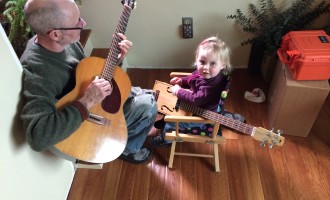
Role Models Can Change a Community
April 7, 2016
April 7, 2016
[Posted in the Homer News on April 7, 2016]
Role models are truly vital to a healthy and resilient community. I’m not just saying that, that is science. Luckily, this community has so many wonderful people with amazing talents and impressive stories that it would be impossible to share them all.
We are also lucky that there are certain events, like the recent Women of Distinction Awards, that give us the chance to honor some of these local icons. Interestingly, the recipient of the Lifelong Learner Award this weekend, Linda Chamberlain, could tell you about the science behind how role models can make a community resilient.
Linda has been working on the forefront with researchers around the country who have been clearly demonstrating how the effects of childhood trauma can follow a person into adulthood and manifest as seemingly unrelated disease, illness and social hardships.
I attended one of Linda’s presentations here in Homer myself and I was stunned. Keep in mind that I am more likely to know what makes a carrot in my garden grow than what makes a human tick, but even with my lack of medical background her words were clear.
What science clearly shows is that when someone experiences trauma, their body reacts. Heart rate increases, a biochemical reaction takes place, hormones are released and neurons ignite. That is all normal. But when stress becomes toxic, trauma is intense or long-term, then the body will adapt to that. Brains actually shift in structure to accommodate for stress reactions.
This means that later in life the body will hold on to the patterns of intense reaction to stress. Side effects that seem completely unrelated, like obesity or addiction, have been shown to tie directly back to the levels of toxic stress experienced as a child.
What the studies have shown that I found most shocking, however, was that Adverse Childhood Experiences (ACEs) were not just happening in houses that fit a stereotype for child abuse. ACEs are experienced at all levels of society, throughout our communities everywhere.
Let me tell you, after hearing that ACEs are everywhere and that these traumatized kids grow up to be unhealthy adults, Linda’s presentation was ranking as a real downer. But for any of you who know Linda and her chipper personality, you also know that she loves sharing the positive side.
This is where she gets to tell her audience about the solution. Lots of people have experienced ACEs, but many grow up to be solid, grounded and healthy adults.
Why is that? It all comes back around to role models.
When kids have toxic stress in their lives and no one is around to talk to or no one shows they care, then that stress can roll around in their heads much longer and literally affect the structure of their brains.
If there is, on the other hand, a caring teacher or neighbor or relative that shows up with kind words then that stress reaction can be stopped. The body can relax and adapt to an environment of safety instead of just stress.
That is so simple it may sound silly. But that is exactly why the Alaska Youth Risk Behavior Survey asks students if they feel comfortable seeking help from at least one adult besides their parents if they had an important question affecting their lives. Those who answer yes have the answer to healing and future resiliency. You can’t always change a child’s home life, but you can influence their overall experience.
Emotions are real and they affect us physically. If we experience too much dis-ease, then we end up with disease later on. Articles abound on the subject.
But I love the potential that Linda talks about for our resilient and adaptive brain and body. Having people in our lives that we look up to, who show us a non-stressful way to be and an ounce of time and care can make all the difference.
So how can our community best connect with our youth? How can you best become that adult that youth feel comfortable seeking help from?
Remember, you aren’t just helping a child, you are improving your overall community health for the long term.
If you had a chance to hear Chris Fontaine’s words at her Hero of the Heart speech at the Women of Distinction event recently, then you would have heard another amazing person talking about the major importance of adults listening to kids, believing their stories and encouraging them to talk; that this significantly decreased their likelihood to self-blame and have further physical problems connected to a traumatic event.
So we have wonderful role models in this community.
And their message is clear: for healthy adults and a healthy community, be a role model yourself and connect with kids.
Kyra Wagner is the coordinator of Sustainable Homer and a member of the MAPP steering committee.

